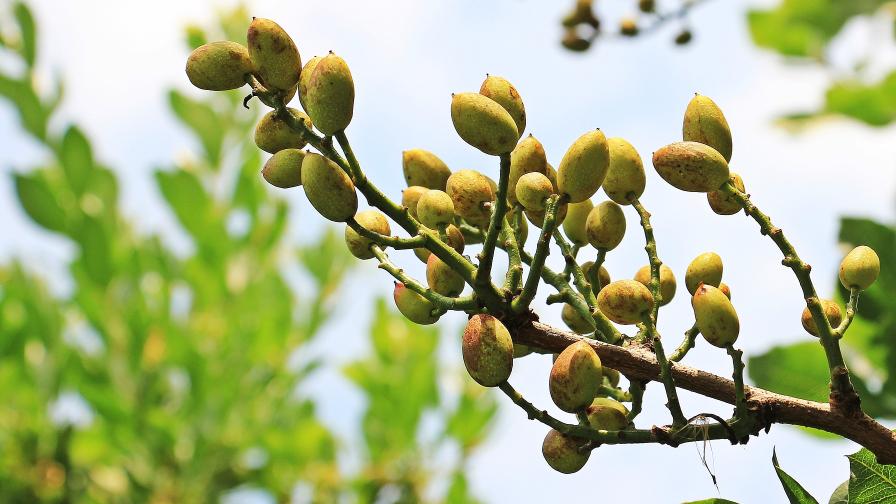Food Safety Lawyer Offers Insight On Jensen Farms Case
In September, brothers Eric and Ryan Jensen of Colorado-based Jensen Farms were arrested and charged with misdemeanors as a result of the 2011 Listeria outbreak that was traced back to melons from their farm. The tainted melons killed 33 people and more than 140 became ill.
The arrest sent a shockwave through the industry. In fact, several people interviewed at the United Fresh Washington Public Policy Conference last month called the outbreak “a tragedy” but were stunned over the criminal charges.
The fact remains that 33 people died, and the most prominent foodborne illness lawyer in the country, Bill Marler, who is managing partner of Marler Clark in Seattle, WA, said that is the main reason charges were brought against the Jensen brothers. American Vegetable Grower had a chance to ask Marler about the charges, the liability of the rest of the produce chain, and how this will impact the industry moving forward.

Bill Marler
Q1 Why do you feel the Jensen brothers should be brought up on misdemeanor charges of introducing adulterated food into state commerce?
Marler: I’ve been doing food poisoning cases for 20 years, so I’ve been representing victims from the Jack in the Box E. coli outbreak in 1993 to the present. I have seen a lot of suffering. With the Jensen Farms case, I represent 46 families and 28 are the people who died. So my perspective is a little different. In terms of criminal sanctions, I can count on my hand the number of times criminal charges have been filed regarding a food safety case.
It is important to note that criminal sanctions just don’t happen. With the felony charges against the Peanut Corporation of America, the argument is that they intentionally sold Salmonella-tainted peanut butter. [Editor’s Note: The Salmonella outbreak in peanut butter occurred in 2008 and 2009, killing nine and sickening more than 700 people across the country.]
That hasn’t happened with the Jensen case and that is why [the brothers] were charged with misdemeanors. With [misdemeanors] you don’t have to prove intent. All that needs to be proved is that the product went out the door contaminated and you later find out that people got sick or [the product] tests positive for a pathogen.
The laws regarding this case have existed for half a century. If the food is contaminated unknowingly, the person responsible can be charged with a misdemeanor. In the Jensen case and for each charge, that includes a year in jail and $250,000 fine. For the Jensens, they are looking at up to six years in jail each and $1.5 million in fines each. I think if their product had not been linked with 147 people sick and 33 people dead, this would not be happening. I think it was hard for the U.S. Attorneys office to ignore the fact that 33 people died.
In the future, I don’t think that prosecuting attorneys are going to start willy-nilly charging people with run-of-the mill foodborne illness outbreaks. If I was the CEO [of a food company/farm], though, I would put in processes to ensure I am on the cutting edge of food safety technology.
Q2 You indicated in September in a blog that the Jensens should share the blame with the retailers and auditor involved. What was your thinking behind that?
Marler: A lot of the food safety people at these big corporations are interested in farm to fork food
safety, but the reality of how food is produced in the U.S. is the big retail chains dictate how the product will
be cleaned, who will do the audit, and what price will be paid for the products.
One thing we forget about is ultimately in the cantaloupe outbreak the entire chain was involved. It was Walmart’s decision that they use Primus for audits. In the end, the entire chain has some culpability. Just focusing on the Jensens does a disservice to the entire industry, but as it stands now the Jensens will be the only ones charged.
Q3 What kind of precedent does this set for the fresh produce industry going forward?
Marler: I don’t foresee that every foodborne illness outbreak will be a criminal case. I think that prosecutors have had these tools in their toolbox for decades and they chose not to reach into those toolboxes and that is called prosecutorial discretion. There are lots of people who get arrested for marijuana possession and they don’t get charged or they get a plea arrangement, so this is not something that is unusual.
That being said, the Jensen Farms prosecution is one of the very few prosecutions I have seen in 20 years. The fact that it happened should cause those bringing food into interstate commerce to pay more attention. That 33 people died is the driver in this.
As far as takeaway pointers, pay more attention to food safety. Hope that your product doesn’t kill a lot of people so a prosecutor doesn’t come knocking at your door.









